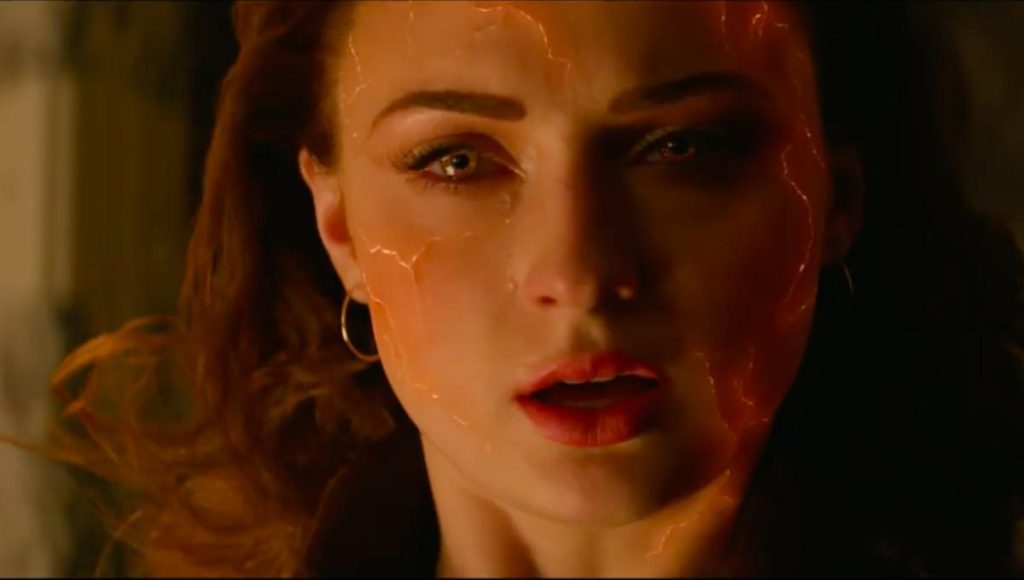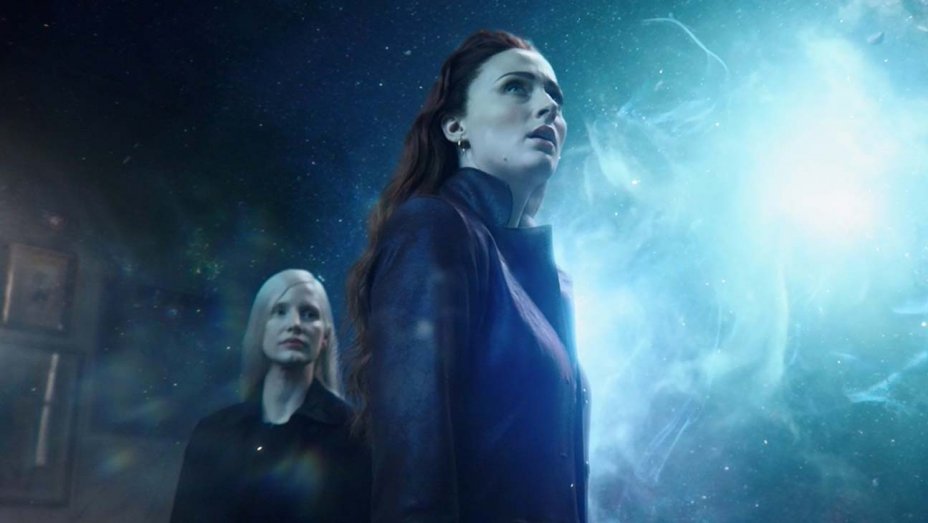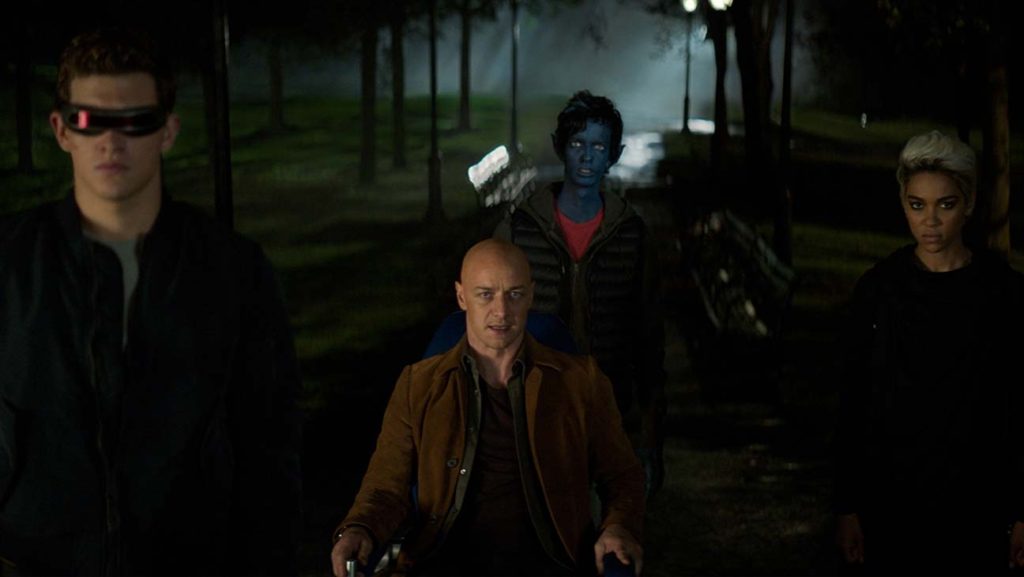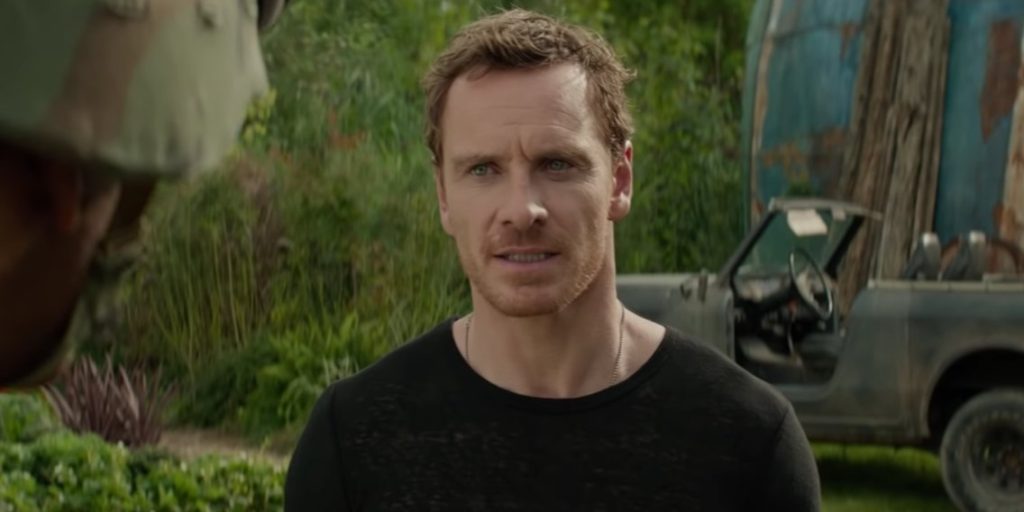
To paraphrase Patrick McGoohan’s line from Braveheart, the trouble with superhero movies is that they’re full of superheroes. On the flat pages of comic books, readers can rely on their imagination, translating two-dimensional splash panels into vibrant, kinetic action in their mind’s eye. But on film, the crude literalism of the screen requires directors to convey often ambiguous powers—psychic energy, beams of light, metaphysical toil—in blunt cinematic language. The result tends to be a strange sensation of detachment, as though you’re watching stage actors pantomime their performances in an early rehearsal, knowing that the production flourishes will be locked in by opening night.
Jean Grey, whose malevolent alter ego gives the film Dark Phoenix its name, presents an especially formidable challenge in this regard. She wields her mutant abilities, which in the comic-book lexicon carry fancy terms like astral projection and telekinesis, not via any visible external method but through internal concentration. She can practically rip the world apart with her mind, but how do you articulate that process with any spatial coherence or physical weight?
This is a problem that has long plagued superhero films in general and the X-Men movies in particular. It is also one that Simon Kinberg, the veteran writer and producer who is making his directing debut with Dark Phoenix, seems ill-equipped to solve. As he must, he conceives of Jean—who was previously played, some decades ago, by Famke Janssen, and is now portrayed by a game Sophie Turner—as a figure of unimaginable power, an unstoppable force of mind and body that makes even the great Professor Charles Xavier (James McAvoy) a little nervous. Yet Kinberg is helpless when it comes to illustrating the intensity of that power. His most notable flourish, in which tiny veins of yellow-gold light suddenly spread across Jean’s face like superhero acne, suggests that he’s taken inspiration from a famous line in Clue. Beyond that, he mostly puts Turner through a facial contortion regimen; over the course of the movie, Jean manifests her gift largely by widening her eyes, scrunching up her nose, and furrowing her brow. She also screams a lot. It’s worldwide destruction by way of temper tantrum.

Which is not exactly implausible these days. Like many of the X-Men films, Dark Phoenix features a political dimension, though its allegory is muddled rather than pointed. Charles, in an effort to protect his mutant charges, has allied with the U.S. government, hoping that the X-Men’s usefulness will stave off their persecution. (The year is purportedly 1992, though unlike with the similarly ’90s-set Captain Marvel, the time period here is entirely irrelevant; it’s presumably selected in a feeble attempt to bring continuity to this sprawling, disjointed cinematic universe.) This partnership vexes Charles’s sister, Raven (Jennifer Lawrence), who is wary of her comrades serving as a paramilitary force. Their disagreement may be designed to mirror the prior disputes between the pragmatic Charles and the ruthless Erik Lehnsherr, aka Magneto (Michael Fassbender), but it’s thinly sketched, an artificial schism between two differently abled siblings.
Neither of whom is really important. As its title suggests, Dark Phoenix is primarily Jean’s story; more specifically, it unfolds as a war for her soul. Following a suitably entertaining rescue mission in outer space where Kinberg adroitly highlights his heroes’ diverse abilities—the blazing speed of Quicksilver (Evan Peters), the teleporting jumps of Nightcrawler (Kodi Smit-McPhee), the elemental manipulation of Storm (Alexandra Shipp)—Jean absorbs one of those massive blasts of energy that temporarily turn the black screen into an orange fireball. At first, she’s miraculously unharmed, but soon she’s experiencing visions of traumatic childhood memories, which Charles (who has something of a Messiah complex) had heretofore blockaded from her mind. Stung and betrayed, Jean absconds from Charles’s mutant academy—yes, it still features an outdoor basketball court that can fold open and reveal a jet hangar, which will always be super-cool—and quickly loses control of her powers, resulting in a colleague being buried and battle lines being drawn.

As opening acts go, it’s a decent enough setup; after all, the X-Men—most of whose powers are more inherently cinematic than Jean’s—tend to be more interesting when fighting each other than when collaborating to vanquish a foreign threat, as they did in the risible earlier installment, X-Men: Apocalypse. And in some ways, Dark Phoenix operates as a more dour spin on the internal squabbling of the MCU’s Captain America: Civil War. This time around, Hank McCoy/Beast (Nicholas Hoult), the scientist-cum-burly blue brawler, teams up with Magneto—who solemnly retrieves his long-buried helmet in a sequence evocative of John Wick—in a vengeful pact to assassinate Jean; they’re opposed by Charles and most of his underlings, including Scott Summers/Cyclops (Tye Sheridan), Jean’s clingy boyfriend whose eyes double as deadly lasers. The movie’s most propulsive action sequence takes place on the crowded streets of New York, with Kinberg finding inventive ways to translate his heroes’ abilities into vigorous combat: Nightcrawler ferrying pals out of danger, Storm weaponizing weather, Magneto magicking a subway car into a L train.
Alas, this infighting proves to be a feint. The true villain of Dark Phoenix is Vuk, the leader of a race of extraterrestrials who covet Jean’s power and plan to use it to wipe out humanity and then reconstitute their ravaged homeland on Earth. (Or something.) Vuk should be a highlight, given that she assumes the human form of Jessica Chastain, but despite her platinum hair and high heels, she exemplifies the film’s fundamental failures. Kinberg supplies a number of scenes in which Jean and Vuk do battle, which really means that they wince and growl and sigh while surrounded by floating motes of dust and swirling flashes of light. (He also includes countless scenes of idiotic humans firing machine guns at aliens who are plainly bulletproof.) There is no heft to the action, just empty posturing and vague intimations of monumental struggle.

Kinberg’s failures as a purveyor of superhero mayhem aside, Dark Phoenix occupies a curious place in the comic-book canon. It understands its characters well enough, and when it occasionally relaxes and gives its actors room to breathe, they perform nicely. Turner, no stranger to communicating seismic change—after all, she spent most of this decade gradually shepherding Sansa Stark from a girlish naïf into a master manipulator—effectively taps into Jean’s existential angst, while Fassbender is reliably smoldering as everyone’s favorite metal-wielder. Yet there’s also an undercurrent of drudging repetition, and not just because Brett Ratner previously told a similar story of Jean’s tortured transformation, which formed the fulcrum of the much-reviled X-Men: The Last Stand. Kinberg’s particular narrative may be different, but his fundamental building blocks—the conflict and reconciliation, the inanity of the academy’s teacher-student dynamics, the wispy gestures toward topicality—all feel yanked from prior X-Men movies.
Except, perhaps, for the finality. Essentially, Dark Phoenix functions as an elegy for Fox’s X-Men Universe, which has run for nearly 20 years and has yielded 12 wildly varied episodes. Of course, no one will pretend that we’re done seeing the X-Men on screen, not when the predominant reaction to Disney’s acquisition of Fox was, “Cool, now Wolverine can fight Hulk!” But it does feel like a swan song for this particular iteration of X-Men movies, and for their talented cast. (As was the case with Logan, there’s no post-credits stinger.) That recognition lends Dark Phoenix a frisson of emotion that the film itself does little to earn, or to amplify. Maybe it’s invented a new, post-entertainment form of fan service. In refusing to be memorable, the movie has made it that much easier to say goodbye.
Grade: C
Jeremy Beck is the editor-in-chief of MovieManifesto. He watches more movies and television than he probably should.
